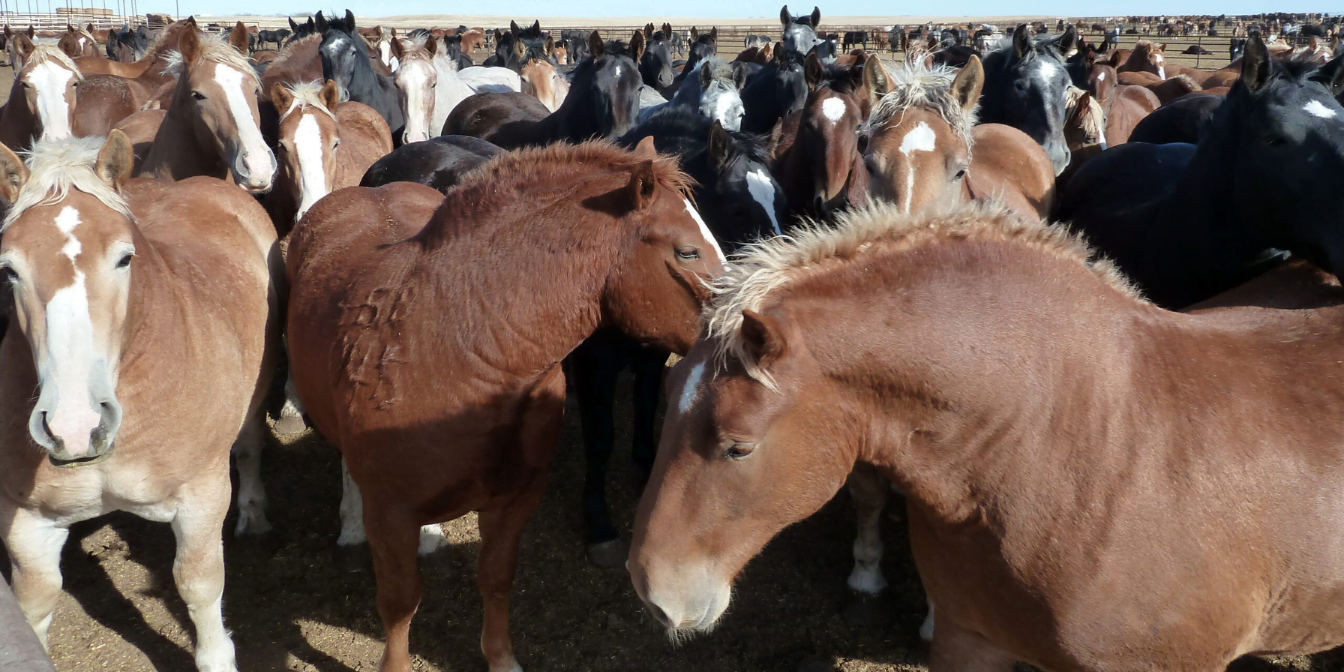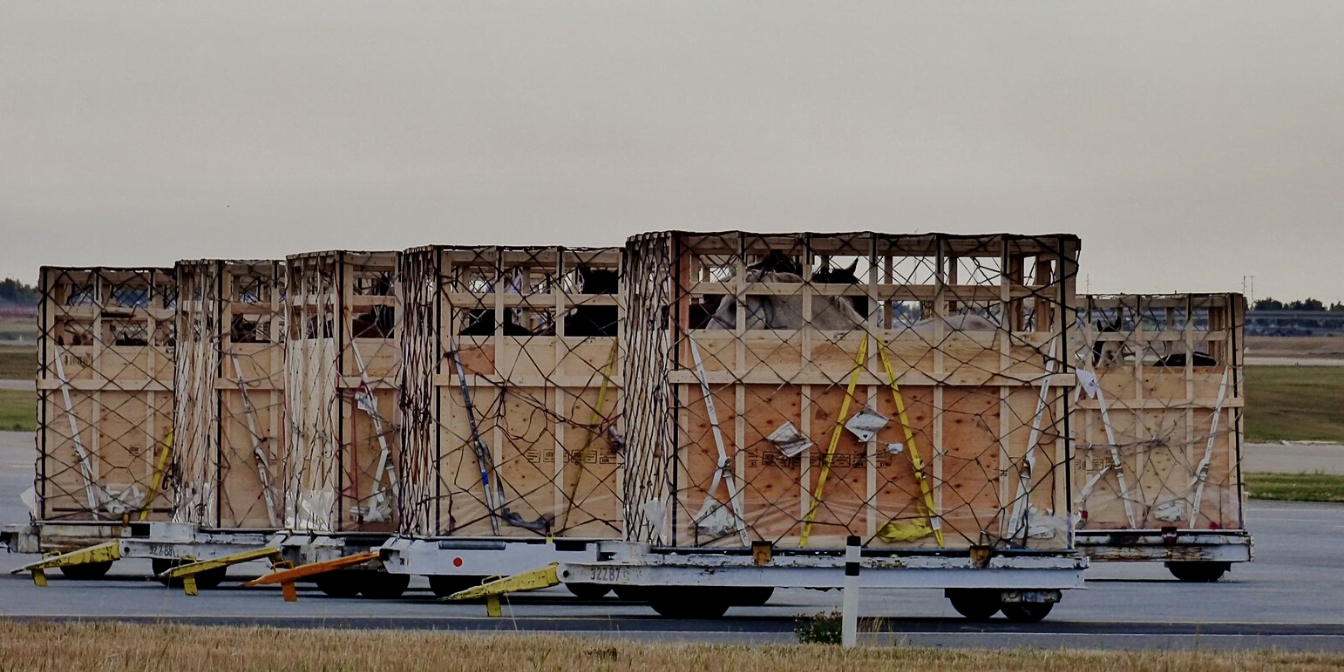8. By Canadian law, horses can travel without food, water and rest for 28 hours
— Yet studies show there is an increased risk of injury, dehydration, and fatigue with increased journey duration.
— It has also been proven that withholding water from horses for longer than 24 hours during hot weather causes severe dehydration. Horses are exported from Canada in all seasons, including summer when temperatures can be high.
— Insufficient water intake also puts these animals at increased risk of painful intestinal colic.
— Documented cases of airport delays have extended the permitted 28-hour transport time up to 36 hours, further jeopardizing the horses’ physical wellbeing.









